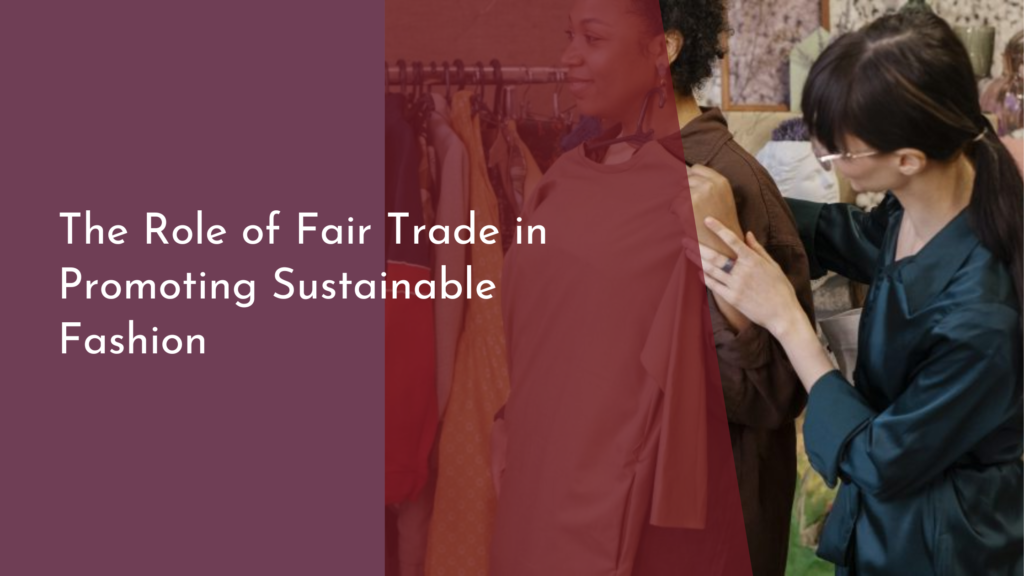The Importance of Ethical Sourcing in Fashion
In recent years, the fashion industry has experienced a seismic shift towards ethical sourcing, driven by increasing consumer awareness and demand for transparency. Ethical sourcing in fashion involves ensuring that every step of the production process is conducted responsibly, with respect for people, communities, and the environment. As more brands embrace these principles, the industry is witnessing a positive transformation that benefits both producers and consumers alike. In this article, we will explore the importance of ethical sourcing in fashion, its impact on communities, how brands are implementing these practices, and what the future holds for this crucial movement.
Understanding Ethical Sourcing in Fashion
Ethical sourcing in fashion refers to the practice of procuring materials and products in a manner that considers ethical and sustainable factors. This involves ensuring fair labor practices, safe working conditions, and environmentally conscious production methods. By prioritizing these elements, brands can significantly reduce their environmental footprint and improve the quality of life for garment workers. Ethical sourcing extends beyond mere compliance and involves a commitment to positively impacting people and the planet.
One key aspect of ethical sourcing is supply chain transparency. Brands that are committed to ethical practices often provide detailed information about where and how their products are made. This transparency fosters consumer trust and encourages accountability among manufacturers. Furthermore, ethical sourcing includes the use of sustainable materials such as organic cotton, recycled textiles, and plant-based dyes, which help to reduce pollution and waste. By understanding and adopting ethical sourcing practices, fashion brands can play a pivotal role in promoting social justice and environmental sustainability.
The Impact of Ethical Sourcing on Communities
When fashion brands prioritize ethical sourcing, the positive effects reverberate through the communities involved in the production process. For instance, by ensuring fair wages and safe working conditions, brands can help lift garment workers out of poverty and empower them with better living standards. This empowerment often leads to improved education, health, and overall quality of life for workers and their families, creating a ripple effect of positive change.
Moreover, ethical sourcing often involves partnerships with local artisans and craftspeople, preserving traditional skills and cultural heritage. These partnerships not only provide economic opportunities for communities but also celebrate and sustain local craftsmanship. Through ethical sourcing, communities become collaborators in the fashion industry, contributing their unique perspectives and talents. This mutual respect and collaboration can lead to more innovative and culturally rich products that appeal to a global audience.
How Brands Implement Ethical Practices
Brands committed to ethical sourcing often start by conducting thorough audits of their supply chains to identify areas that need improvement. This process involves evaluating factories, assessing labor conditions, and ensuring compliance with international labor standards. Companies may also establish direct relationships with suppliers and producers, allowing for greater oversight and the ability to implement corrective measures swiftly when necessary.
In addition, brands are increasingly adopting certifications and standards such as Fair Trade, Global Organic Textile Standard (GOTS), and Bluesign to assure consumers of their commitment to ethical sourcing. These certifications provide an added layer of credibility and help guide brands in maintaining rigorous ethical standards. Furthermore, many fashion brands are investing in technology and innovation to enhance their sustainability efforts, such as using blockchain for transparency or developing new eco-friendly materials. By integrating these practices, companies not only bolster their ethical credentials but also lead the charge in redefining industry norms.
Celebrating Progress and Looking to the Future
The progress made in ethical sourcing within the fashion industry is both promising and inspiring. Many brands have successfully integrated ethical practices into their core operations, paving the way for a more sustainable and equitable future. This shift is reflected in the growing consumer demand for ethically produced goods, signaling a collective move towards conscious consumption. The celebration of these successes serves as a testament to the industry’s potential to drive positive change on a global scale.
As we look to the future, the focus should be on continuous improvement and innovation in ethical sourcing practices. Brands must remain vigilant, adapting to new challenges and opportunities in sustainability. Collaboration between industry stakeholders, including policymakers, consumers, and advocacy groups, will be essential to cultivate an environment where ethical sourcing is the norm rather than the exception. With ongoing commitment and dedication, the fashion industry can continue to make strides towards a more sustainable and compassionate future that benefits everyone involved.
In conclusion, the importance of ethical sourcing in fashion cannot be overstated. It is a vital component in creating a sustainable and equitable industry that respects both people and the planet. From fostering transparency and accountability to empowering communities, ethical sourcing is driving a much-needed transformation in the fashion world. As consumers, we have the power to support this movement by choosing brands that prioritize ethical practices. Together, we can celebrate the progress made and continue to advocate for a fashion industry that not only adorns us but also uplifts and sustains those who make it possible.



